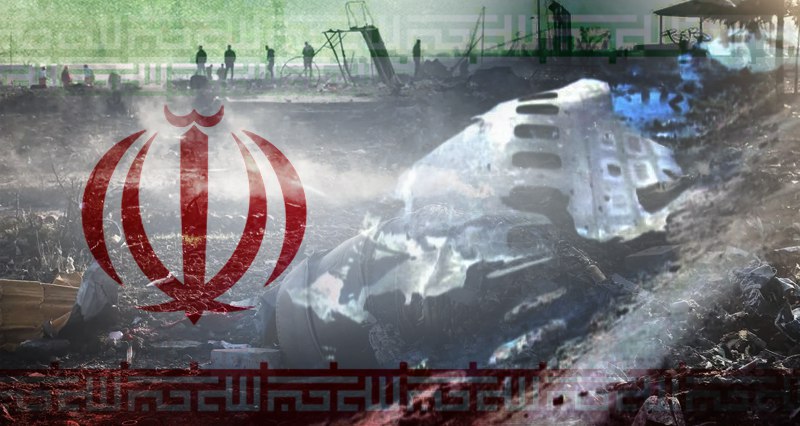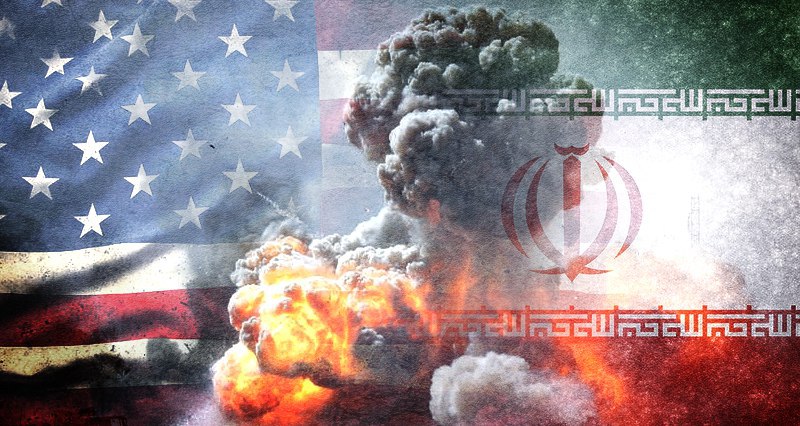The ongoing conflict between the US and Iran has become one of the greatest paradoxes in the world because, on the one hand, the consequences of such a large scale war make it unlikely to ever happen, while on the other hand, in recent weeks, both sides have shown that they are ready to kick off this fight at any moment.
IRAN’S MISSILE ATTACKS AGAINST US BASES IN IRAQ
In response to the assassination of General Qassem Soleimani by the US Army, Iran launched a barrage of missiles against several US bases in Iraq, including the Al-Asad Airbase in Al-Anbar Governorate and a base in Erbil. Shortly after, Camp Taji was also hit by a missile attack. Naturally, Iran did not claim responsibility for the attack against the Erbil base or Camp Taji, denying any involvement.
The attack on Al-Asad Airbase damaged military drones and warplane hangers as well as an army command hub.
IRAN MISSILE ATTACK TO USA HQ AIN AL ASSAD pic.twitter.com/9aY8X8Bq2i
— Reza (@Reza73173327) January 8, 2020
Iran employed Fateh-313 missiles with a range of 500km and Qiam 1 missiles with range of 800km in the attacks. These two missiles differ from those Iran used to attack ISIS in 2017. Earlier, the Qiam 1 missiles were used in an attack on Riyadh Airport in 2017. These missiles are typically equipped with radar stealth technology. This missile has a speech of Mach 4-5: for the same reason, it is very hard for enemy defensive forces to destroy it.
THE EARLY HOURS OF THE IRAN-US WAR
It is hard to predict what will happen in the early stages of the conflict between the US and Iran, because of the complex nature of contemporary combat. We can at least predict that in the early hours of the conflict that US will launch drone strikes against Iran in an attempt to damage power and fuel transmission installations. They will also likely launch missile attacks against various Iranian military positions; Israel and Saudi Arabia will also almost certainly bombard Iranian positions in Syria, Iraq, Lebanon and Yemen.
GEOPOLITICAL SHIFTS IN THE REGION
A war between the US and Iran would have extremely unpleasant consequences; tensions in the Middle East will reach their highest levels ever, and the battle will not be contained in one or two countries: the entire Middle East will be engulfed in war.
Considering Iran’s military power and the US logistic situation, Washington will not be able to create a multilateral conflict and limited strikes will be on the agenda. By contrast, Iran will confront Washington with its full military strength, and, given the military presence and advisory military officers of Iran across various parts of the Middle East, this conflict will entirely transform the region.
BREAKING: In address to the nation, President Trump says no Americans were harmed in Iran's missile attack, and Iran now appears to be standing down. https://t.co/sP6WH7pm7R pic.twitter.com/CxlNSkgnJV
— NBC News (@NBCNews) January 8, 2020
Israel will face irreparable damage, and we will witness the emigration of Jews from Israel; a situation could result in complete annihilation of Israel on a social level.
Saudi Arabia will lose a large part of its installations and infrastructures– accordingly, Riyadh will lose its current status in the region.
Countries like Bahrain and the UAE will face complete destruction, or at the very least, be transformed forever.
This situation may lead to strengthened status of countries such as Pakistan and Turkey.
Lebanon, Syria, Jordan and Kuwait will also bear tremendous losses.
Iran might reach a special historical status in the Middle East by virtue of undermining Israel. The US’ withdrawal from the region will largely consolidate the role of Russia and China in geostrategic and geopolitical relations.
PROBABLE SCENARIOS AND AFTERMATH
Iran could deploy military troops to the Mediterranean Sea in order to defend Syria against terrorist groups. The Iranian military is widely involved in Syria, Iraq, Lebanon and Yemen at present, but Iran’s military operations beyond its borders have struggled in terms of legitimacy. For example, countries like Qatar and Turkey gave the right to Iran to operate beyond its borders, but Jordan or Kuwait say these operations are illegitimate and illegal.
The assassination of Soleimani and Iran’s confrontation with the US troops could trigger the rulers of Arab states who consider the US their enemy to lean towards Iran. The Governments of Jordan, Kuwait, the UAE and even Egypt might see the US as their strategic partner, but this position is not that of the entire political spectrum in these countries.
Iran intended to kill U.S. personnel in missile attack -US general https://t.co/RcmOKITdrR pic.twitter.com/oA69wBXXp3
— Reuters (@Reuters) January 8, 2020
Following a US-Iranian conflict, political parties which are active in these countries and are at odds with the presence of America in the region might join coalition of countries opposing US presence in the Middle East, leaning towards the coalition of Russia, Turkey and Iran. If this happens, we might see the reconsideration of international policies of countries such as Egypt, Kuwait and Jordan.
However, such a conflict will not be limited to the political and diplomatic fields, and will also greatly influence the energy sector.
Bab-el-Mandeb and the Strait of Hormuz, the most important transit routes of the world, will be directly affected by this conflict, and pose a serious question for the world.
China and Japan, the largest consumers of Middle Eastern oil, will face serious uncertainty. Qatar is the largest exporter of LNG, and will therefore face irreparable barriers as a result of not having a safe transit route. The entire world would be affected accordingly.
THE DOWNING OF THE UKRANIAN AIRLINER
Concurrent with these attacks, a Ukrainian airliner was shot down immediately after takeoff from Iran. Canada and the US claim that Iranian military forces targeted the plane with surface-to-air rockets, but did not provide any proof the claim. Iran did not immediately respond to the incident.
Some days later, the Iranian Aviation Organization looked into the case and checked the black box of plane, concluding that it was destroyed due to technical deficiencies.

However, the General Staff of the Armed Forces of the Islamic Republic of Iran independently dealt with the case and discovered that the plane had been targeted by ground-to-air missile, calling it an accident and a result of human error.
The General Staff of the Armed Forces of the Islamic Republic of Iran took responsibility for the incident despite that there was no proof connecting the institution in examinations of the plane’s black box or the crash scene.
The Islamic Republic of Iran deeply regrets this disastrous mistake.
My thoughts and prayers go to all the mourning families. I offer my sincerest condolences. https://t.co/4dkePxupzm
— Hassan Rouhani (@HassanRouhani) January 11, 2020
Reuters, quoting Canadian, European and American sources on the condition of anonymity, reported that intelligence agencies found that the plane crashed as a result of technical problems could not have been shot-down by a rocket.
Donald Trump intends to distract from his defeat in the missile attack against the Al-Asad Airbase by magnifying this case. This strategy, however, depends on Iran’s patience, as the government might respond to Trump’s psychological pressure by launching further missile attacks against US airbases.
MEDIATING NATIONS
Regardless of the broader ties among the countries in the Middle East and the world, two countries, the UK and Oman, despite not playing a direct role in these conflicts, have historically played a role in negotiating the disputes.
The UK could mediate between Iran and America around the terms of the JCPOA, but Iran has practically sabotaged this route by refusing to comply with its JCPOA commitments.
Oman could also have diminished tensions between Iran and the US, but the country’s status has been more or less neutralized regionally after the death of Qaboos bin Said Al-Said.
However, while the two countries tasked with mediating between Tehran and Washington are pragmatically incapable of doing so, Russia, as an international power close which is close to Iran and intends to reduce tension in the Middle East, can play an important mediating role.If Beijing, Moscow and Tehran work together, the issue might be resolved at the highest political level between the leaders of Iran and the United States.

















Leave a Reply